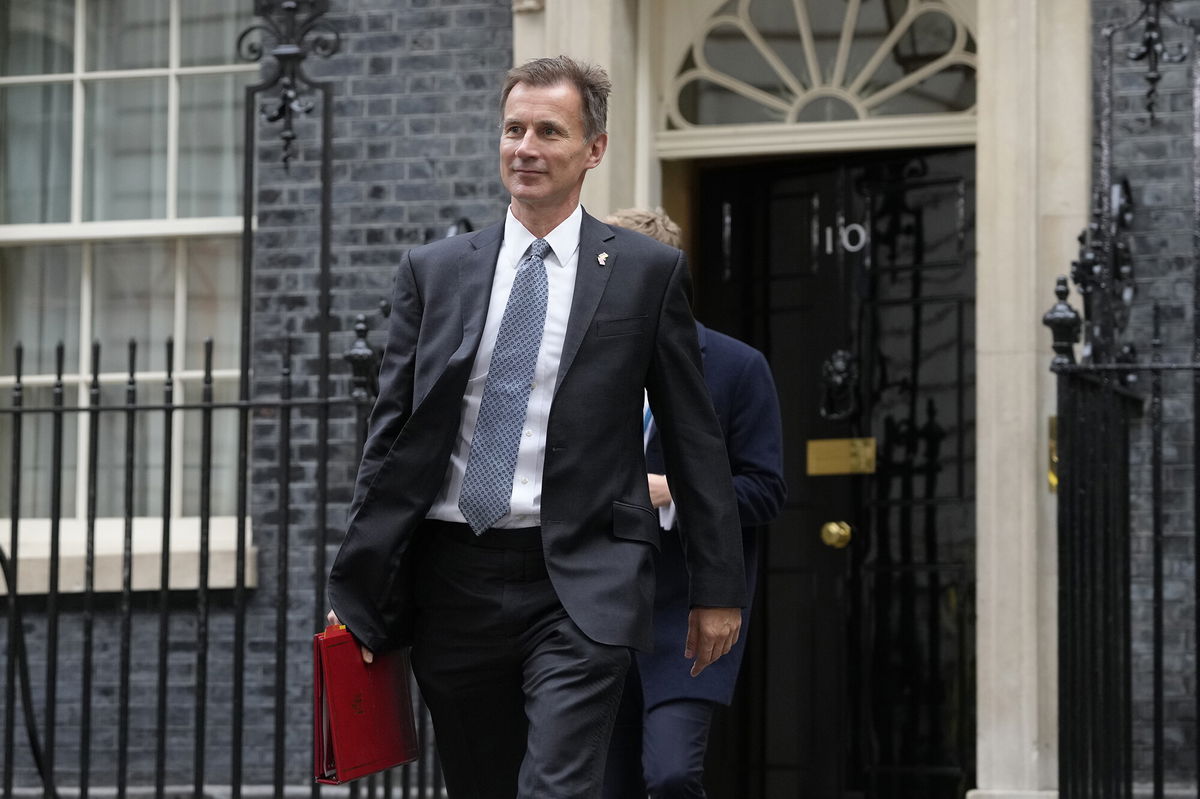UK delays budget as new prime minister tries to fix ‘economic crisis’

The UK government has delayed its budget
By Hanna Ziady and Julia Horowitz, CNN Business
The UK government has delayed its budget by more than two weeks, buying new Prime Minister Rishi Sunak some time to make difficult choices about how to tackle the country’s “profound economic crisis.”
Finance minister Jeremy Hunt will now deliver the government’s medium-term fiscal plan on November 17, according to a statement from the Treasury. It had been scheduled for October 31, after the date was previously pulled forward by more than three weeks in a desperate attempt to reassure investors spooked by huge unfunded tax cuts promised by former Prime Minister Liz Truss.
Sunak, Britain’s third prime minister in seven weeks, took office on Tuesday with a pledge to fix the “mistakes” Truss made.
He told lawmakers Wednesday that the government would have to take “difficult decisions to restore economic stability and confidence.”
“But what I can say — as we did during Covid — we will always protect the most vulnerable, we will do this in a fair way,” Sunak said. “Leadership is not selling fairytales. It is confronting challenges and that is the leadership the British people will get from this government,” he added.
Truss’ “mini” budget of September 23 crashed the pound and caused a rout in the bond market, sending UK borrowing costs — including mortgage rates — soaring.
While Hunt has already jettisoned the bulk of those tax cuts, restoring a sense of calm to markets, investors remain anxious to understand how the government plans to tackle its growing debt burden in the middle of a recession.
Plugging the hole
There are no easy solutions. To bring down debt as a share of the economy, the government needs to find between £30 billion ($34.7 billion) and £40 billion ($46.3 billion) in the next five years, according to calculations by the Institute for Fiscal Studies (IFS), an influential think tank.
The only way to plug the hole is by either cutting public spending or increasing revenue by hiking taxes. Both are likely to prove highly unpopular with British voters facing a worsening cost-of-living crisis as food and energy bills soar.
One area Sunak may be tempted to tap is the social welfare budget. Questions have swirled about whether the Conservative government may try to avoid boosting state benefits in line with inflation, as is customary, and instead link the increase to average earnings, which are not rising as fast as prices.
That could save £7 billion ($8 billion) in 2023-24, according to the IFS, but would prove controversial.
A more palatable option, at least for households, would be extracting more taxes from corporations. Hunt has already said that corporate taxes will rise from 19% to 25% next spring, and is open to the idea of windfall taxes on banks and oil and gas companies.
The risk, however, is that spending too little or raising taxes too much could exacerbate Britain’s downturn. A weak economy will only make debt and spending problems worse.
According to Hunt, the budget, when it comes, will set out how the government plans to reduce debt in the medium term. At a Cabinet meeting on Wednesday, Hunt said that it will be accompanied by a complete analysis of the government’s plans for growth and spending by the UK fiscal watchdog, the Office for Budget Responsibility.
–— Allegra Goodwin and Lauren Kent contributed reporting.
The-CNN-Wire
™ & © 2022 Cable News Network, Inc., a Warner Bros. Discovery Company. All rights reserved.